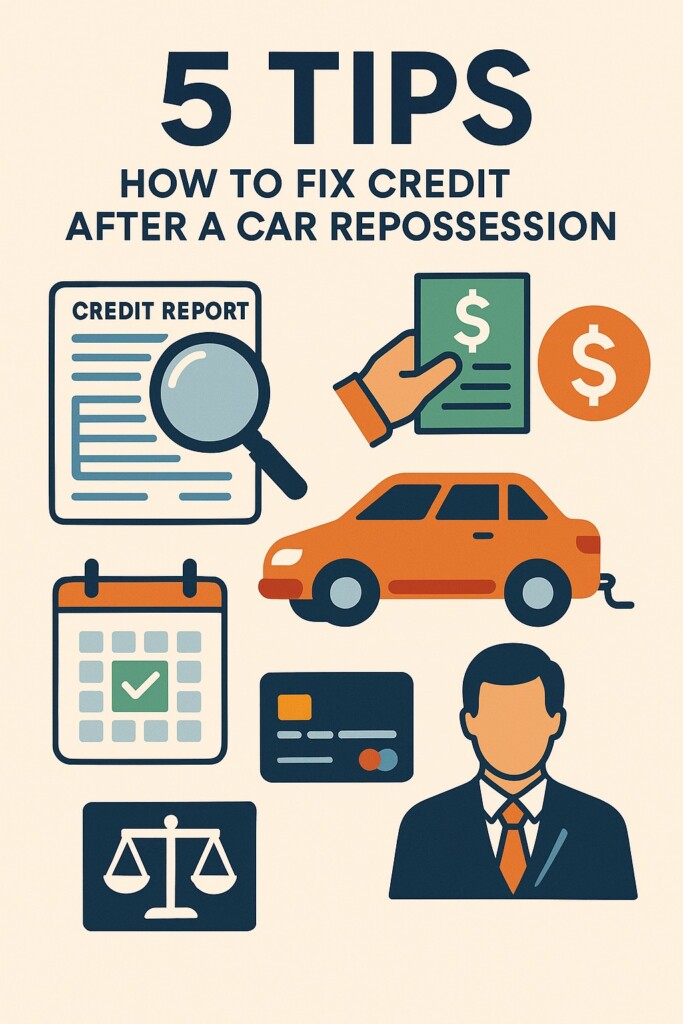Getting your car repossessed can feel like hitting a wall. One moment you are trying to stay afloat, and the next your vehicle is gone and your credit score takes a serious hit. For many people, this is not just about losing transportation. It becomes a turning point in how they view money, credit, and what it takes to recover.
We have seen many people go through the same thing. And the truth is, there is always a way forward. It begins by understanding what a repossession really does to your credit and what you can do to fix it, one step at a time.
How Long Does a Repossession Stay on Your Credit?
Let’s clear this up from the start. People often ask how long does a repossession stay on your credit, and the answer can sound discouraging at first. It stays on your credit report for seven years. That seven-year period begins from the date of your first missed payment that led to the repossession.
But here is what many do not realize. Those seven years are not equally damaging. Lenders pay close attention to what happens after the repossession. If you sit still and do nothing, the mark continues to hurt your score. But if you take action and begin rebuilding your credit, the effect starts to fade much sooner. Time matters, but so does your next move.
5 Tips How to Fix Credit After a Car Repossession
Once the car is gone and the paperwork shows up in the mail, it hits you. Something has to change. The good news is that it can. If you are wondering how to fix credit after a car repossession, there is no magic trick, just a few real-world steps that actually help.
Carefully Review Your Credit Report
Take a quiet evening, sit down with a pen, and open your credit report. Go through all three reports carefully. A name spelled wrong or a date that is slightly off could mess with your score more than you think. A balance that looks off. A date that does not match. A loan listed twice. It is surprisingly common to spot something that does not belong. If a detail jumps out or feels off, do not ignore it. Look closer and follow up. File a dispute. You cannot fix the past, but you can make sure the report tells the truth.
Pay the Deficiency Balance
You thought it was over when the car got towed. Then comes the letter. The auction did not cover the loan, and now you owe the rest. This is the deficiency balance. If you ignore it, it does not go away. It just gets louder, with collection calls or worse. Call the lender. Ask for a settlement or payment plan. They might say yes. Paying what you can shows you are not running. That still counts for something.
Make Payments on Time
This part is boring, but it works. Pick one bill, any bill, and make sure it is paid on time. Every month. No delays. Then add another. Slowly, your report starts to reflect something new. It is no longer just a repossession. It becomes a timeline of steady recovery. Write it down somewhere you will see it. A sticky note, a calendar, even a friend who will text you,
whatever helps you stay on track. Mark calendars. Whatever it takes to stay consistent.
Keep Credit Balances Low
Let’s say you still have a credit card. Keep it, but do not max it out. Try to use less than a third of the limit. If the card gives you $900, try not to go over $300. Lenders notice this. It tells them you are not using credit as a crutch. Even if your score moves up slowly, it is going in the right direction.
Consider Talking to a Repossession Lawyer
Sometimes the whole thing feels wrong. Maybe no one warned you. Maybe the loan terms were hard to follow. If something seems off, talk to someone who knows the law. A repossession lawyer might find a detail you missed. They can help clean up the mess or even push back. And sometimes just having someone explain things makes a big difference.


